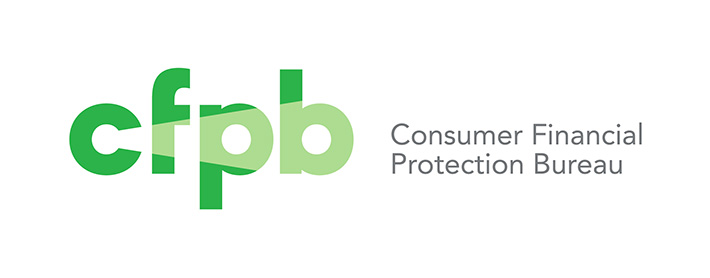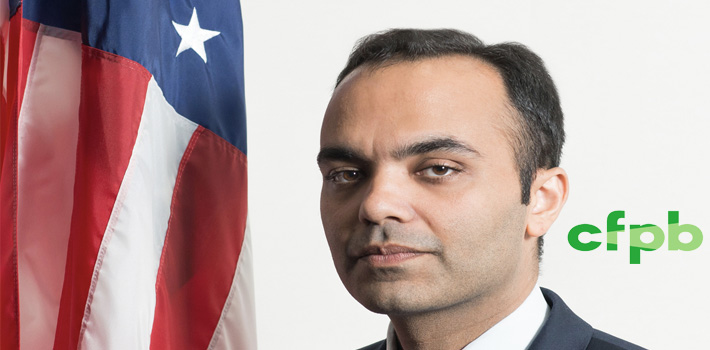Regulation
New Jersey Bill’s New Definition of “Commercial Financing”
January 2, 2025New Jersey Senate Bill 1397 is still alive in 2025. This particular commercial financing disclosure bill intends to require APR disclosures for a broad range of products in commercial financing, including non-loan products.
“Commercial financing means an open-end financing, closed-end financing, sales-based financing, factoring transaction, finance lease, as that term is defined in N.J.S.12A:2A-103, or any other form of financing, the proceeds of which the recipient does not intend to use primarily for personal, family, or household purposes,” the bill says.
Previously, there was a provision in the bill that allowed covered parties to use a “total dollar cost” disclosure OR the APR. The total dollar cost option was removed in a December 19 amendment.
The Other Side of the DFPI
December 30, 2024Last week I made some rather unfortunate comments about the California Department of Financial Protection and Innovation (“DFPI”). My error was based on a misreading of a portion of the DFPI website relating to the minimum equity requirements for mortgage loan brokers, which, at first glance, appeared to also refer to the equity requirements for finance lenders and brokers. This mistake was corrected in a subsequently published erratum.
I also wrote some rather critical observations about the departing commissioner, Ms. Chlothilde Hewlett. This, I now feel, was unfair. Commissioner Hewlett’s background and career in public service, consumer protection and law enforcement are nothing less than admirable. As an attorney representing lenders and brokers in the commercial finance industry for almost 45 years, I have seen more than my fair share of fraudulent behavior and bad players. The industry absolutely needs policing and oversight! Unfortunate but true. I have seen people rob charities, steal from relatives, and sue their “friends”. Not exactly what you want to hear during the Christmas season but nevertheless a reality.
I have worked extensively with the people at the DFPI for years. They are professional, courteous and responsive, almost without fail. I am grateful to these folks, who will remain unnamed, for assisting my clients in procuring the valuable CFL license. To them, and to you, I wish a happy holiday season and a prosperous and healthy new year.
The Law Offices of Kenneth Charles Greene present this article. All copyrightable text, the selection, arrangement, and presentation of all materials (including information in the public domain), and the overall design of this presentation are the property of the Law Offices of Kenneth Charles Greene. All rights reserved. Permission is granted to download and reprint materials from this article for the purpose of viewing, reading, and retaining for reference. Any other copying, distribution, retransmission, or modification of information or materials from this article, whether in electronic or hard copy form, without the express prior written permission of Kenneth C. Greene is prohibited. The materials available from this article are for informational purposes only and not for the purpose of providing legal advice. You should contact your attorney to obtain advice with respect to any issue or problem. Use of and access to these materials does not create an attorney-client relationship between the Law Office of Kenneth Charles Greene and the user or viewer. The opinions expressed herein are the opinions of the individual author.
House Bill Seeks More Time for Lenders to Comply with CFPB Small Business Lending Rule, Redefine Small Business
December 18, 2024A recently amended bill that was introduced in the US House of Representatives earlier this year aims to push back compliance deadlines with the CFPB’s Small Business Lending data collection rule. Specifically, HR 8338 seeks a 3-year preparation period from the time the rule was issued (which was March 2023) followed by a 2-year safe harbor where penalties are not issued for a failure to comply.
Furthermore, the bill aims to clarify the definition of “small business” as being any entity having gross annual revenue of $1 million or less in the most recently completed fiscal year.
You can read the text of the bill here.
CFPB Rule Would Likely Impact Sale of Business Loan Applicant Data
December 3, 2024 A proposed rule by the CFPB aims to “Stop Data Brokers from Selling Sensitive Personal Data to Scammers, Stalkers, and Spies” by limiting “the sale of personal identifiers like Social Security Numbers and phone numbers collected by certain companies and make sure that people’s financial data such as income is only shared for legitimate purposes, like facilitating a mortgage approval, and not sold to scammers targeting those in financial distress.” Presented as a consumer-facing protection that would make parties selling data subject to the Fair Credit Reporting Act while prohibiting the sale of such data to third parties for “marketing” the full 206-page proposal suggests that it would apply equally when individual information is used in the course of applying for business loans.
A proposed rule by the CFPB aims to “Stop Data Brokers from Selling Sensitive Personal Data to Scammers, Stalkers, and Spies” by limiting “the sale of personal identifiers like Social Security Numbers and phone numbers collected by certain companies and make sure that people’s financial data such as income is only shared for legitimate purposes, like facilitating a mortgage approval, and not sold to scammers targeting those in financial distress.” Presented as a consumer-facing protection that would make parties selling data subject to the Fair Credit Reporting Act while prohibiting the sale of such data to third parties for “marketing” the full 206-page proposal suggests that it would apply equally when individual information is used in the course of applying for business loans.
“The CFPB expects that the proposal may have a limited impact on the cost of credit for small entities. One small entity representative stated during the SBREFA process that the proposed rule may affect the cost and ease of accessing credit for small entities. In particular, the written instructions provision may slow down the application process for small business loans because creditors lending to small businesses check the personal credit of the small business owner and may need to rely on the small business owner’s written authorization to do so. In theory, the proposed rule could increase the cost of credit for small businesses if the compliance costs discussed above are passed on to small businesses in the form of higher on loans from lenders.””
“Data brokers sell lists of financially vulnerable individuals to predatory lenders for targeted marketing campaigns,” the CFPB wrote in a summary of the propsal. “This practice is compounded by the widespread sale of personal identifiers collected by consumer reporting agencies, also known as ‘credit header’ data—including names, addresses, and Social Security numbers—which has created a thriving market for sensitive personal information that puts Americans’ privacy and financial security at risk.”
Anyone can officially comment on this proposal until March 3, 2025.
Announcement
Proposed Rule
Undercover Agents Working for Federal Regulators Posed as Merchants, Inquired About Business Loans
November 13, 2024 If you want to get a sense of what CFPB oversight of small business financing is going to look like when it goes into effect in 2025, then consider the federal regulator just revealed that it hired undercover agents last year to pose as business owners, had them inquire about business loans, and recorded it all. All with the assistance of the DOJ.
If you want to get a sense of what CFPB oversight of small business financing is going to look like when it goes into effect in 2025, then consider the federal regulator just revealed that it hired undercover agents last year to pose as business owners, had them inquire about business loans, and recorded it all. All with the assistance of the DOJ.
Focused entirely on Nassau County, NY and Fairfax, VA, the undercover agents pretended their fake businesses did $100k – $400k in annual revenue and be open for less than 5 years with 700+ FICO. With what amounted to more than 100 total in-person visits across 23 financial institutions (all of which were bank branches) for the duration of the operation, the CFPB allegedly hoped to gauge potential racial discrimination with the lenders they spoke with.
The undercover agents, described as testers, were instructed to tell representatives at banks that they were “looking to expand their business and to inquire about financing through business loans and business lines of credit.”
“All calls and visits with the lenders were audio recorded,” states the official report issued by the CFPB. The CFPB paid close attention to whether or not bank representatives suggested alternative financing products and whether or not they encouraged or discouraged to do one thing versus another.

While anyone is free to opine on what the findings of this investigation actually were and the context of which they were found (FULL REPORT HERE), readers are reminded that the CFPB will be tasked with reviewing these very demographic metrics, like the ones they inquired about during this investigation, for almost all small business finance companies starting in July 2025 (even if you’re a broker). These regulations apply to revenue based financing providers just the same as lenders unless the incoming administration intervenes.
The CFPB’s role in small business finance was dictated in 2010 during the passage of Dodd-Frank, but it has taken nearly 15 years for the rules to finally go into effect. While the statute empowering the regulator to collect demographic data from small business finance companies does not specifically state that it has been granted any authority to bring enforcement actions based upon that data, the revelation that the regulator conducted an undercover operation that included them pretending to be business owners looking for loans across two states with the assistance of the Department of Justice should be a good indication of where things were at least planning to go. The current head of the CFPB, for example, Rohit Chopra, had expressed publicly that his plan was to wipe out all companies engaged in merchant cash advance. It is not known at this time who, if anyone, might replace Chopra under Trump. The last time Trump became president, the CFPB head that had been installed by Obama, famously claimed at the time that the President of the United States did not possess the authority to remove him. He was later removed.
New Jersey Tries Commercial Financing Disclosure Bill Again
October 17, 2024For the 7th year in a row the legislature in New Jersey is trying to pass a commercial financing disclosure bill. While a notable component is an APR requirement it also applies a broad warning to brokers.
A broker shall not make or use:
(1) any false or misleading representations or omit any material fact in the offer or sale of the services of a broker or engage, directly or indirectly, in any act that operates or would operate as fraud or deception upon any person in connection with the offer or sale of the services of a broker, notwithstanding the absence of reliance by the buyer; or
(2) any false or deceptive representation in its business dealings.1
The full language can be found here.
Wondering How to Comment on the Impending NY Disclosure Rules?
September 25, 2022The deadline to comment on New York’s latest iteration of its commercial financing disclosure rules is October 31st. As stated on the Department of Financial Service’s website, the agency’s official contact on the matter is George Bogdan (George.Bogdan@dfs.ny.gov). It’s the same contact as was given for the previous comment period.
Notably, the DFS has said that it has received some comments that have asked the agency to abolish the disclosure rules altogether. That won’t happen, the DFS explained, because it is required by law to enact them.
Even if there are no additional comment periods after this one, it is highly unlikely that the NY rules would go into effect this year.
New York DFS Publishes New Proposal on Commercial Financing Disclosure Law
September 15, 2022 The New York regulator in charge of rolling out the commercial financing disclosure law, published a new draft of the rules in the State Register yesterday.
The New York regulator in charge of rolling out the commercial financing disclosure law, published a new draft of the rules in the State Register yesterday.
In it, the New York Department of Financial Services (DFS) also gave its own assessment of the comments received from potentially covered parties.
“Some commenters are opposed to the basic purpose of the Commercial Finance Disclosure Law (“CFDL”), Financial Services Law (“FSL”) sections 801-811, and accordingly are opposed to the regulation,” DFS said. “Most commenters acknowledge the need for the rule to implement the CFDL and made comments intended to improve the regulation from their perspective.”
Thus, with all of the feedback previously received, the new proposal is out. The public now has until October 31st to provide further feedback to it.





























